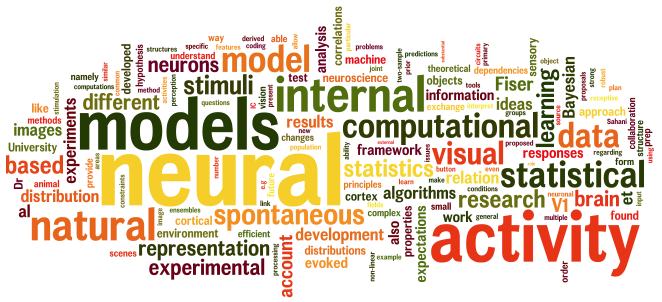Pietro BerkesPrincipal Data Scientis at Nagra, KudelskiLausanne, Switzerland |

|
News
| 28.01.2019: | I'll present some recent work that we have realized with C+ Africa as "The sleeping giants: AI and TV operators". See you at the AI & Media track of the AMLD conference at EPFL |
| 13.01.2019: | I moved this home page to Github. The content is outdated, but I'll fix that one step at the time |
| 12.11.2018: | How did fans follow the FIFA World Cup on their mobile devices? The second part of "Optimizing online video apps: learnings from FIFA 2018 World Cup OTT" is now available on Medium! |
| 12.11.2018: | How did fans follow the FIFA World Cup on their mobile devices? Find out in the first part of "Optimizing online video apps: learnings from FIFA 2018 World Cup OTT" on Medium |
Publications - Software

Research projects
My main research interest concerns the way the brain forms a high-level representation of the environment from raw sensory input and without supervision. I approach this problem at a computational level in the framework of Bayesian statistical inference and learning. I like to work from different perspectives, using machine learning models and analysis of electrophysiological data. My goal is to understand how neuronal populations support these probabilistic computations, what are the principles that guide their adaptation to the statistics of the environment, and how their final representation of the world is organized.
- No evidence for active sparsification in primary visual cortex
- Evidence for statistically optimal inference and learning in the visual cortex
- Characterizing neural dependencies with Poisson copula models
- On sparsity and overcompleteness in image models
- Structured representations in the visual cortex
- Relation between Slow Feature Analysis and Independent Component Analysis
- Analysis and interpretation of inhomogeneous quadratic forms as receptive fields
- Slowness as a computational principle for the visual cortex
Bonus tracks
- masterbaboon.com: Artificial Life, Artificial Intelligence, and games
- Promoting transparency in science (outdated)